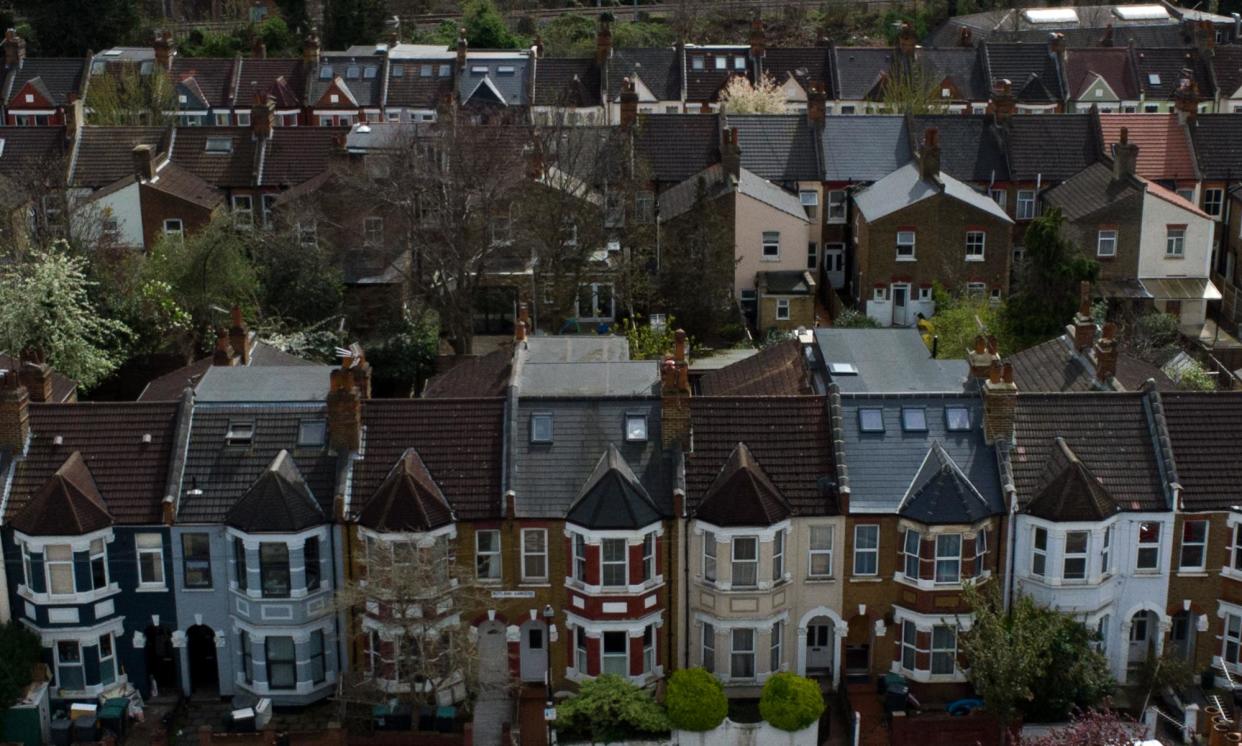Housing is many UK voters’ priority but rental system remains unfixed

Andy Leek’s escape to Argentina from Britain’s soaring rents is no doubt extreme. But the fact that this relatively successful artist feels he is better off paying transatlantic air fares than stumping up for ever-rising landlord demands is indicative of a crisis that only ever seems to get worse.
Polls show 23% of voters now rank housing as the most important issue facing the country, up from 14% at the December 2019 general election. More people now rate it as the priority than crime or the environment, according to YouGov. Yet little is done.
The historic rises in private rents recorded by official statisticians this week confirmed the pain renters are already feeling in their wallets. Across England renters are paying £107 more a month on average compared with a year earlier, and it is almost double that in London. Private rents keep rising faster than inflation and far above pay rises, driven in part by the continued high cost of borrowing for landlords but also the chronic mismatch of supply and demand.
For example, housing associations started building only 60 new homes in London in the last three months of last year, according to the latest provisional official figures – the lowest number in more than 30 years, if confirmed.
The constant rent increases are causing upheaval for families who face no choice but to move somewhere cheaper, often again and again. The financial cost of these unwanted moves by renters has been estimated at more than £500m a year by the housing charity Shelter. It reckons there were more than 800,000 such upheavals in the last year.
The social cost, not least to children, is even greater. Polly Neate, Shelter’s chief executive, said it was “impossible for renters to put down roots knowing a no-fault eviction could plunge them back into chaos at any moment”.
Which brings us to the government’s totemic promise on reforming private renting in England and Wales: banning section 21 notices, the legal provision that allows landlords to evict tenants without a specific reason such as failing to pay rent or antisocial behaviour.
This reform, first proposed by the Conservative government in 2019, still has not been enacted amid opposition from parts of the landlord lobby in the House of Commons.
The Renters Reform Coalition, a group of charities and campaign groups representing tenants, has estimated that nearly 100,000 households have been put at risk of homelessness as a result of the practice in the meantime.
It points out that this change has taken longer than Brexit, leaving “England’s broken renting system” unfixed. The renters (reform) bill is expected to return to the Commons next week for another go.
So what might Labour and the Conservatives offer the one in five households in England and Wales now living in privately rented accommodation when the general election finally comes?
Neither party accept the argument for any kind of long-term rent controls as are being proposed in Scotland (the Labour mayors of Greater Manchester, Liverpool and London have called for rent freezing powers).
If the Conservatives do not ban no-fault evictions before the election, Labour has said it will. But it remains unclear how far it would tighten up on other forms of eviction that could provide a backdoor. In short, renters would be wise not to expect too much from the manifestos.

 Yahoo News
Yahoo News 
